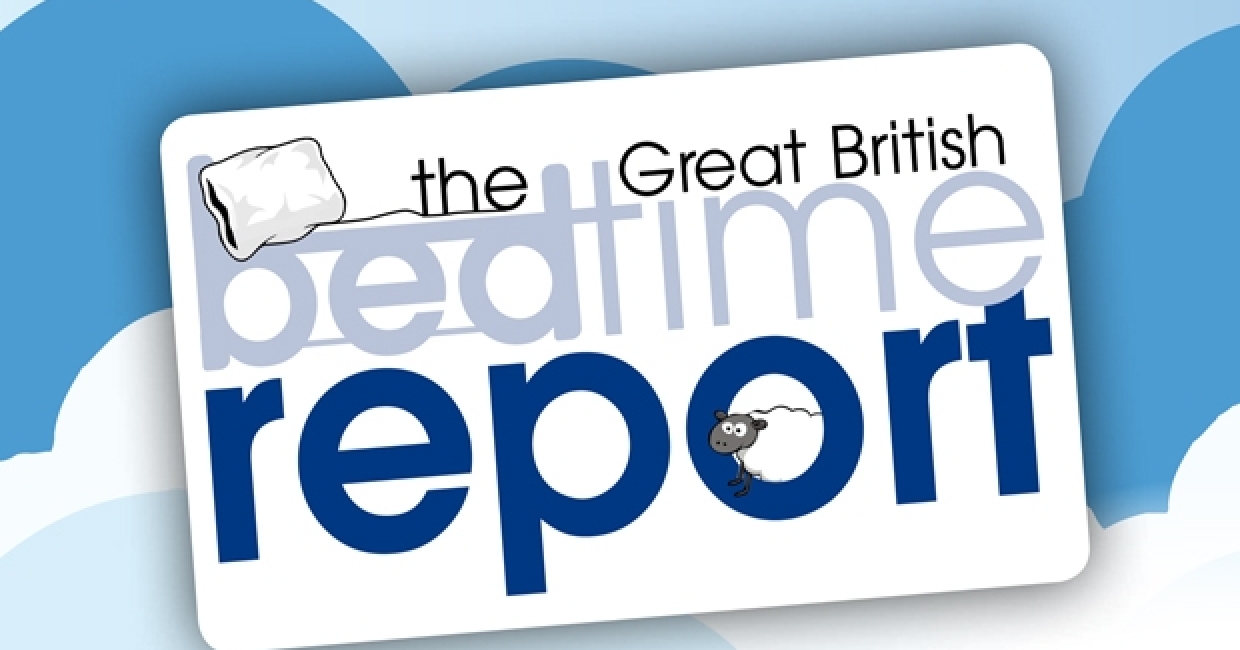The state of the nation’s sleep comes under scrutiny for National Bed Month (March) as The Sleep Council launches the results of its biggest ever audit of Britain’s bedtime habits.
According to The Great British Bedtime Report published on 1st March:
• A third of the population (33%) now get by on five to six hours’ sleep a night, compared to 27% in 2010. The majority of people (70%) sleep for seven hours or less.
• Almost half of Britons say that stress or worry keeps them awake at night.
• As many as 7.9 million have used alcohol to help them get to sleep at night, while 6.8 million self-medicate with over-the-counter tonics.
• High earners (£65-£75,000) get the best sleep of all.
• The average people spend on a new bed is £583.05, and the divan is the most widely-bought type, with 63% of us sleeping on one.
The findings come from The Sleep Council’s biggest ever research project. Some 5000 people were surveyed in January 2013 to provide an overview of British sleeping habits. The results are published in an in-depth report – The Great British Bedtime Report – which is being sent to leading Government health officials.
“The report provides a wealth of information on sleep and beds, which will hopefully not just attract plenty of media and consumer attention but which the trade can use in their sales and marketing messages,” says Jessica Alexander of The Sleep Council.
The Daily Mail featured an exclusive on 1st March. The survey has also gone down well with radio and online and offline press. Broadcast coverage has included BBC Breakfast Time and ITV Daybreak. The story was also heavily promoted through social media platforms with links to the Sleep Council’s own blog.
Says Jessica: “Sleeping well is as crucial to our health and wellbeing as eating a healthy diet or exercising regularly. But while we’re frequently exposed to Government campaigns that encourage us to eat ‘Five a Day’, ‘Live Well’ or ‘Change4Life’, the nation’s sleeping habits are largely ignored. We want to see sleep moved up the political agenda and a public information campaign launched to encourage people to understand the importance of good sleep and how to achieve it.”
The report revealed that the average Briton goes to bed at 11.15pm and gets just six hours and 35 minutes sleep per night. Although current NHS guidelines indicate that we don’t necessarily need eight hours’ sleep, experts believe that most adults require somewhere between six and nine hours in order to feel refreshed and to function well both mentally and physically.
“The rise in the number of people getting less than six hours sleep is certainly a concern – research would suggest that mental and physical problems become more pronounced in those sleeping for less than six hours,” says Jessica.
“Just one bad night’s sleep affects our mood, concentration and alertness, while long-term sleep deprivation has far more serious consequences – it’s been linked to a number of serious health problems such as heart disease, diabetes and stroke.”
The research also found that many of us are too anxious to sleep – almost half of us now say that stress or worry keeps them awake at night (47%) rising to 54% of women (compared to 40% of men) and 57% of singles.
High earners get the best sleep of all, while those on low incomes sleep the worst. More than a third (34%) of those earning £65-£75,000 sleep very well, while 10% of those earning less than £15,000 sleep very poorly. 8% of those who don’t work also sleep very poorly most nights.
The Sleep Council’s Great British Bedtime report is intended to provide a full audit into the nation’s sleeping habits, and will be repeated on a regular basis in order to monitor any changes.
38% of respondents believe that changing their bedtime and wake-up time would improve their sleep, while 17% have taken medication and 14% have tried over-the-counter remedies in an attempt to relieve the problem. Drinking alcohol (16%) is another worryingly common method people use to help them drop off. As a percentage of the adult population, that equates to 7.9 million turning to alcohol to help them sleep, while 6.8 million self-medicate with over-the-counter tonics.
People who exercise five to six times per week are the least likely to take medication – 12% compared to a national average of 17% – which suggests this could be the optimal amount of exercise needed to improve sleep.
While the importance of the bedroom environment – heat, light and noise – was underestimated, the value of a good bed is recognised, with more than one in five respondents saying they could improve their sleep simply by buying a new bed. And seven out of 10 (72%) follow Sleep Council advice and have had their bed for less than seven years.
The average people spend on a new bed is £583.05, and the divan is the most widely bought type, with 63% of us sleeping on one. King-size beds are popular, with 31% choosing this size.
Says Jessica: “What’s clear is that one of the best ways to improve sleep is simply to take more exercise. For many of us, that, plus a sensible, regular bedtime and a comfortable bed, are key to sleeping well.
“Improving ‘sleep hygiene’ by keeping electrical devices like TVs and laptops out of the bedroom, giving ourselves time to wind down before bed and keeping our bedroom dark and quiet, can also help.
“Given that more than four in 10 Britons (41%) feel positive after a good night’s sleep, a third feel happy and almost a quarter (24%) feel productive, it’s well worth making the effort to improve our sleeping habits.”







